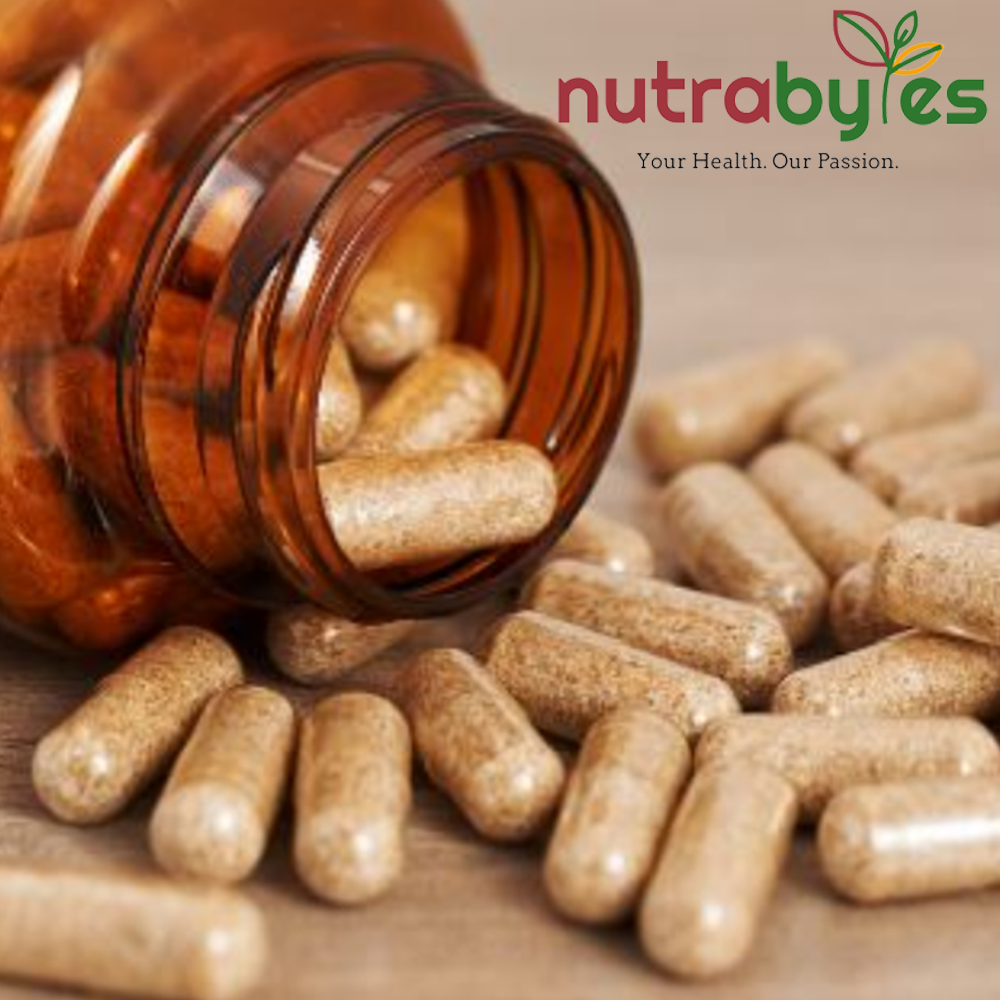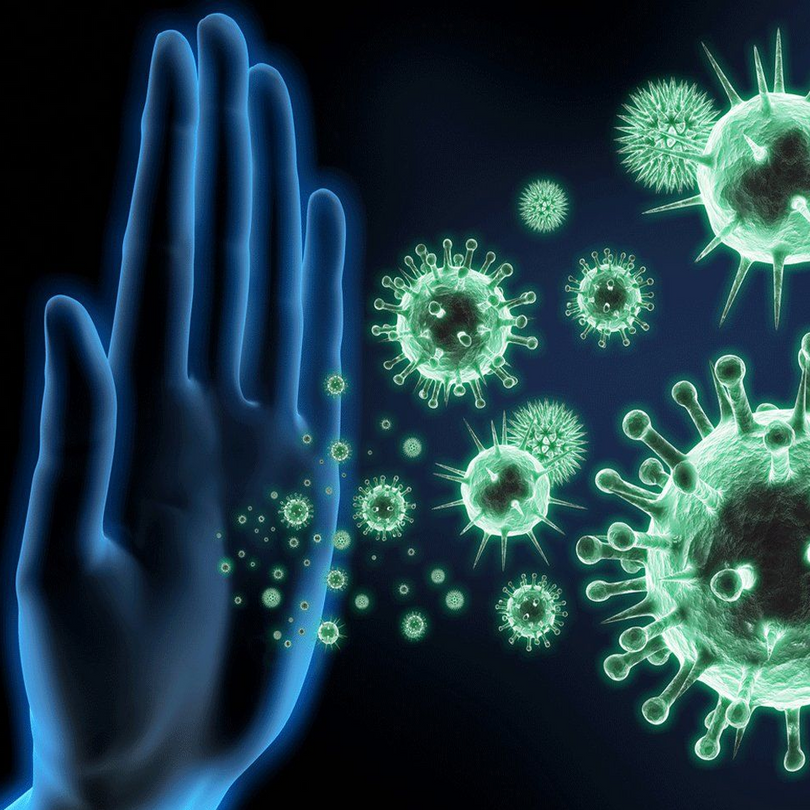What is ashwagandha?
Ashwagandha has been used for centuries in traditional medicine in India, with praises for its medicinal properties – but what makes it special and is there any science to it?
Ashwagandha, commonly used in Indian ayurvedic medicine, has traditionally been used to help almost everything, from arthritis to rheumatism. Some use it as a general tonic to increase energy, and improve overall health, while others use it to prevent illness in athletes and the elderly.
It's worth noting though, that ashwagandha is not recommended for use during pregnancy and lactation, plus if you’re taking medication, you always should consult with a healthcare professional before starting use.
So, what's the evidence to back up these so-called benefits that have been linked to using ashwagandha, or its KSM-66 extract? Let's delve into the facts.
Ashwagandha is a small evergreen shrub that originates from parts of India, the Middle East, and Africa. Its unusual name relates to the way it smells – ashwagandha roots smell like a horse, with ‘ashva’ meaning ‘horse’ and ‘gandha’ meaning ‘smelling like’ in Sanskrit.
The entire plant is harvested, dried, and ground down into a powder, which is sold as ashwagandha supplements. The ashwagandha plant has been traditionally renowned by those who believe in Ayurvedic medicine as one of the most powerful herbs, which spans back thousands of years.
Typically, when people refer to ashwagandha, they're referring to the extract.
What's the difference between KSM-66 and ashwagandha?
The difference between KSM-66 and regular ashwagandha is that traditional ashwagandha is composed of extracts derived from both the leaf and root of the ashwagandha plant, whereas KSM-66 follows a conventional approach and is composed solely of root extract.3
The health benefits of ashwagandha
Ashwagandha has been used for many things over the last 3,000 years.
Potential uses of ashwagandha that have been researched include effects on stress, sexual function and fertility, athletic performance, cognitive performance, pain, fatigue, thyroid function, diabetes, hypercholesterolemia, and tuberculosis. Initial findings for some of these conditions have been promising, but more robust clinical study designs are needed before confirming its benefits.
What Does Ashwagandha Do For A Man?
Ashwagandha is a shrub that grows in Asia and is most commonly used to reduce stress, help with cognitive abilities, lower blood pressure, and improve the immune system.
Ashwagandha is commonly known as Indian ginseng or winter cherry, it is an annual evergreen shrub grown in India and in some parts of Africa. Ashwagandha is an ancient medicinal herb. Ashwagandha supplements help in lowering the cortisol levels thereby reducing stress. It helps to reduce depression. It can boost the hormone testosterone and increase fertility and sperm quality in men. It may increase muscle mass and strength. Ashwagandha supplements may also help in relieving inflammation. It may also help in lowering cholesterol and triglycerides.
Is there sufficient reliable scientific evidence to backup Ashwagandha’s benefits, especially concerning men’s health?
Surprisingly, yes.
And the evidence bank is steadily growing.
In this blog, we will distill the facts from the myths, and point you to the unadulterated truth surrounding Ashwagandha’s benefits and its impact on men’s health, getting to the root of the matter, so you have a clear-eyed view of what consuming Ashwagandha supplements can do for you.
First Up, What Is Ashwagandha or Indian Ginseng?
|
Scientific name: Withania Somnifera Also known as: Indian ginseng, Indian winter cherry Pronunciation: Ash-wa-gan-da Country of origin: India, North Africa, Middle East Bioactive compounds: Alkaloids, Flavonoids, Glycosides, Steroids, and Steroidal lactones which contain withanolides that give the plant most of its properties |
Ashwagandha, or Withania Somnifera, is an herb native to Asia and Africa. It is also called “Indian ginseng” and has been used in traditional Indian Ayurvedic medicine for thousands of years to ease pain and inflammation, treat insomnia, and boost nutrition, along with other conditions. Ashwagandha is also considered an adaptogen. It contains chemicals that might help calm the brain, reduce swelling, lower blood pressure, and alter the immune system. Ashwagandha is a plant of the Solanaceae family, of which potatoes, tomatoes, and chilli peppers are also members.
One look at its scientific name and you should easily guess that it probably has some sleep-inducing properties, somnifera being the Latin word for sleep-inducing.
The fruits, leaves, and roots of this shrub have been in use in the ancient Indian Ayurvedic and Persian Unani medicine systems for more than 5,000 years.
In Ayurveda, Ashwagandha commands high respect as a cure-all and is known as the King of Ayurveda. It has been mainly used as a rejuvenator (Sanskrit: Rasayana), a stamina booster, a libido and sexual performance enhancer in both men and women, and an immunity promoter.
In today’s parlance, Ashwagandha is classified as a natural adaptogen, a plant-based substance that helps the body adapt to stress. To put it concisely, Ashwagandha has antioxidant, anxiolytic, immunomodulatory, neuroprotective, and anti-inflammatory properties.
Let’s unpack how that impacts men’s health.
What Are The Health Benefits of Ashwagandha For Men?
Ashwagandha benefits have been recognised for their ability to reduce stress, enhance energy levels, and support overall well-being. This adaptogenic herb is valued for promoting relaxation, improving sleep quality, and boosting cognitive function.
When it comes to Ashwagandha benefits for men, it is known to increase testosterone levels, enhance muscle strength, and improve stamina.
-
May Lower Stress Levels
Stress is a silent epidemic in the UK. A quarter of the UK’s population feels stressed on more days than not, with a lack of sleep being a major contributor to their stress levels.
Men, of course, are hard hit.
When the body experiences stress, it triggers the HPA (hypothalamic–pituitary–adrenal) axis, that is responsible for regulating stress responses.
The HPA axis in turn indirectly causes an increase in cortisol levels (the stress hormone) and DHEA (dehydroepiandrosterone) levels.
The relationship between cortisol levels and stress is well-documented.
However, the relationship between DHEA and stress is less well-known though people with high stress levels or elevated trauma often do report high DHEA levels. We’ll talk more about the “hormone of youth” DHEA later.
Key chemical components of Ashwagandha, that is, withaferin A and withanolide A, act like the neurotransmitter GABA and help to calm nervous activity in the body. Ashwagandha also helps regulate cortisol levels consequently “calming” a stressed person down.
Further Reading:
May Improve Sexual Health, Increase Sperm Production & Testosterone Levels
The primary health benefits of Ashwagandha lean towards increasing libido (sex drive) and sexual performance in both males and females. Ashwagandha has been known to deal with common fertility problems in men for centuries, and the scientific evidence is only now beginning to explore and confirm it.
In one study, men with oligospermia (low sperm count) were treated with Ashwagandha for 90 days. At the end of the period, these were the observed results:
-
Increase in sperm count
-
Increase in semen volume
-
Increase in sperm motility
-
Increase in levels of reproductive hormones like testosterone and luteinising hormone
The best part is that no side effects were observed in this or in other studies conducted to test the efficacy of Ashwagandha for male health.
However, the exact mechanism of Ashwagandha’s action in promoting male health is still unclear and is being actively investigated.
Ashwagandha also increases the production of DHEA-S (Dehydroepiandrosterone sulfate), popularly known as the hormone of youth.
DHEA is most concentrated in the body during the ages of 20 to 30, after which it begins to decrease at the rate of 1%-4% per year. DHEA levels have been linked to longevity in men.
Both testosterone and DHEA influence sexual health, lean body mass, mental health, cognition, and bone density in males. Studies have shown that Ashwagandha consumption increases the levels of both these reproductive hormones significantly.
Further Reading:
May Improve Athletic Performance & Help Build Muscle Strength
Ashwagandha supplementation is also known to impact athletic performance, giving some credence to the numerous health enthusiasts on social media who swear by it.
One study conducted on a group of young men who took 300 mg of Ashwagandha root extract twice daily for 8 weeks, showed a significant improvement in their muscle strength, an increase in muscle mass in their chest and arms, a decrease in body fat, an increase in maximal aerobic capacity, time to exhaustion, and ventilatory threshold. There was also a significant increase in the VO2 max (maximum aerobic capacity).
Fitness buffs will know that VO2 max is a key indicator of fitness and aerobic endurance.
The study also showed that serum cortisol levels were significantly reduced.
Further Reading:
May Support Memory Retention and Cognitive Function
Ashwagandha has been traditionally used in Ayurveda to boost memory retention and improve cognitive functioning. In one study participants took Ashwagandha capsules once daily for 90 days and reported significant improvement in memory and attention. The neuroprotective properties of this herb are a prominent aspect of the health benefits of Ashwagandha.
Further Reading:
May Improve Immunity and Lower Inflammation
Ashwagandha is being rigorously studied and tested for its antioxidant properties and its ability to reduce inflammation markers in the body.
Inflammation is associated with autoimmune diseases, cardiovascular issues, diabetes, cancers, and neurodegenerative diseases.
So far Ashwagandha’s immunity-boosting properties have been reported only in animal studies. Traditionally, however, this herb has been used to boost immunity.
Further Reading:
-
(Withania somnifera)-Current Research on the Health-Promoting Activities: A Narrative Review.
-
In vivo effects of Ashwagandha (Withania somnifera) extract on the activation of lymphocytes.
May Promote Good Sleep
Poor sleep is associated with poor concentration, cognitive disorders, emotional disturbances, and a lack of motivation. All of which impacts social and professional life.
Participants in one study conducted on people suffering from NRS (non-restorative sleep) took 120 mg of standardised Ashwagandha extract once daily for 6 weeks.
They reported a 72% increase in sleep quality, sleep duration, and wake after sleep onset (WASO).
Further Reading:
Does Ashwagandha Have Any Negative Side Effects?
Ashwagandha appears to be safe for short-term consumption but there still remains a lack of evidence regarding its safety in long-term use. It’s important to consume Ashwagandha within the accepted dosage limits. Some commonly reported side effects are loose motion, drowsiness, vomiting, and nausea.
What Sort Of Ashwagandha Supplement Should I Try?
When looking for an Ashwagandha supplement, try one that uses the root extract where the most potency lies and not extracts from the fruits or leaves. An example would be the KSM66®, which extracts Ashwagandha from the roots only and follows current Good Manufacturing Practices (cGMP).
The Nutrabyes Organic Ashwagandha KSM66® comes with black pepper to help promote digestion and the product has been certified organic by the Soil Association. 1 capsule a day is the recommended dosage.
[product plugin]
In Summary
Forbes magazine has published an article on the 7 Health Benefits of Ashwagandha, According to Science to help better understand the scientific evidence supporting this ancient ayurvedic herb and give further credence to the health claims.
Be it stress, fatigue, fertility issues, decreased sex drive, or poor immunity, Ashwagandha supplements may help males since it is a natural product with very little to no side-effects. To see an improvement in athletic performance, muscle development, stress relief, Ashwagandha is a product worth checking out.
Frequently Asked Questions
Does Ashwagandha help with erectile dysfunction?
There is a lack of scientific evidence to suggest that Ashwagandha helps with erectile dysfunction.
Who should avoid Ashwagandha?
People with thyroid issues, and those on certain medications should consult a doctor before using Ashwagandha supplements.
Does Ashwagandha interact with medications?
Yes, it may interact with certain medications for blood pressure, diabetes, and thyroid issues. Check with your GP before taking Ashwagandha.
How should I take Ashwagandha?
Ashwagandha is available as powder, capsules, or tea. Mix the powder with water, milk, or smoothies or just take the fuss-free capsules.
Disclaimer
We have created this article for informational purposes and not as a substitute for qualified medical advice. While we do our best to keep the information up-to-date and relevant, always consult with your GP or healthcare professional before starting any supplementation regime, especially if you have any existing health-related conditions or are under medical supervision.
Reference Links
-
Websites
-
https://www.food.gov.uk/news-alerts/consultations/ashwagandha
-
https://www.healthline.com/nutrition/ashwagandha-dosage#memory
-
https://www.mariongluckclinic.com/blog/ashwaganda-health-benefits-for-men-libido-energy-more.html
-
https://www.healthline.com/nutrition/ashwagandha#safety-and-side-effects
-
https://www.independent.co.uk/health-and-fitness/ashwagandha-benefits-for-men-b2600381.html
-
https://www.webmd.com/vitamins/ai/ingredientmono-953/ashwagandha
-
https://www.nationalgeographic.com/science/article/ashwagandha-benefits-side-effects
-
https://www.menshealth.com/uk/health/a31147772/ashwagandha-benefits/
-
Scientific Studies
https://pubmed.ncbi.nlm.nih.gov/31517876/
Lopresti AL, Smith SJ, Malvi H, Kodgule R. An investigation into the stress-relieving and pharmacological actions of an ashwagandha (Withania somnifera) extract: A randomized, double-blind, placebo-controlled study. Medicine (Baltimore). 2019 Sep;98(37):e17186. doi: 10.1097/MD.0000000000017186. PMID: 31517876; PMCID: PMC6750292.
Majeed, Muhammed PhDa,b; Nagabhushanam, Kalyanam PhDb; Mundkur, Lakshmi PhDa,*. A standardized Ashwagandha root extract alleviates stress, anxiety, and improves quality of life in healthy adults by modulating stress hormones: Results from a randomized, double-blind, placebo-controlled study. Medicine 102(41):p e35521, October 13, 2023. | DOI: 10.1097/MD.0000000000035521
https://pubmed.ncbi.nlm.nih.gov/19501822/
Ahmad MK, Mahdi AA, Shukla KK, Islam N, Rajender S, Madhukar D, Shankhwar SN, Ahmad S. Withania somnifera improves semen quality by regulating reproductive hormone levels and oxidative stress in seminal plasma of infertile males. Fertil Steril. 2010 Aug;94(3):989-96. doi: 10.1016/j.fertnstert.2009.04.046. Epub 2009 Jun 6. PMID: 19501822.
https://pmc.ncbi.nlm.nih.gov/articles/PMC6438434/
Lopresti AL, Drummond PD, Smith SJ. A Randomized, Double-Blind, Placebo-Controlled, Crossover Study Examining the Hormonal and Vitality Effects of Ashwagandha ( Withania somnifera) in Aging, Overweight Males. Am J Mens Health. 2019 Mar-Apr;13(2):1557988319835985. doi: 10.1177/1557988319835985. PMID: 30854916; PMCID: PMC6438434.
https://pubmed.ncbi.nlm.nih.gov/26609282/
Wankhede S, Langade D, Joshi K, Sinha SR, Bhattacharyya S. Examining the effect of Withania somnifera supplementation on muscle strength and recovery: a randomized controlled trial. J Int Soc Sports Nutr. 2015 Nov 25;12:43. doi: 10.1186/s12970-015-0104-9. PMID: 26609282; PMCID: PMC4658772.
https://pubmed.ncbi.nlm.nih.gov/28471731/
Choudhary D, Bhattacharyya S, Bose S. Efficacy and Safety of Ashwagandha (Withania somnifera (L.) Dunal) Root Extract in Improving Memory and Cognitive Functions. J Diet Suppl. 2017 Nov 2;14(6):599-612. doi: 10.1080/19390211.2017.1284970. Epub 2017 Feb 21. PMID: 28471731.
https://pubmed.ncbi.nlm.nih.gov/31517876/
Lopresti AL, Smith SJ, Malvi H, Kodgule R. An investigation into the stress-relieving and pharmacological actions of an ashwagandha (Withania somnifera) extract: A randomized, double-blind, placebo-controlled study. Medicine (Baltimore). 2019 Sep;98(37):e17186. doi: 10.1097/MD.0000000000017186. PMID: 31517876; PMCID: PMC6750292.
Mikulska P, Malinowska M, Ignacyk M, Szustowski P, Nowak J, Pesta K, Szeląg M, Szklanny D, Judasz E, Kaczmarek G, Ejiohuo OP, Paczkowska-Walendowska M, Gościniak A, Cielecka-Piontek J. Ashwagandha (Withania somnifera)-Current Research on the Health-Promoting Activities: A Narrative Review. Pharmaceutics. 2023 Mar 24;15(4):1057. doi: 10.3390/pharmaceutics15041057. PMID: 37111543; PMCID: PMC10147008.
https://pubmed.ncbi.nlm.nih.gov/19388865/
Mikolai J, Erlandsen A, Murison A, Brown KA, Gregory WL, Raman-Caplan P, Zwickey HL. In vivo effects of Ashwagandha (Withania somnifera) extract on the activation of lymphocytes. J Altern Complement Med. 2009 Apr;15(4):423-30. doi: 10.1089/acm.2008.0215. PMID: 19388865.














